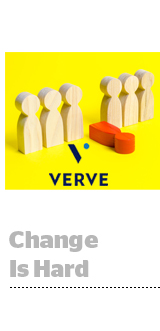
Verve’s big bet on programmatic video last year doesn’t appear to be panning out.
This week, less than one year after acquiring in-app video company Receptiv, Verve experienced its second round of layoffs in just three months, letting 30 staffers go this week, Adweek reported. Sources tell AdExchanger that Verve is also behind on its payments to publisher partners.
When Verve bought Receptiv last May, its plan was to accelerate its programmatic mobile video strategy. Verve CEO Tom Kenney admitted at the time that Verve was behind on the video front and had troubled engineering for a workable solution of its own.
Receptiv appeared to fit the bill. There wasn’t much overlap in their respective SDK footprints and Receptiv had a programmatic video marketplace and proprietary video ad formats.
But going all in on programmatic, rather than focusing on the higher-margin managed business, could be aggravating a cash flow problem at Verve.
According to one source, who wished to remain anonymous, Verve experienced significant softness in its higher-margin managed service business during the first quarter. Revenue for the quarter, the source said, may have been as low as $5 million.
It’s unclear what Verve’s programmatic revenue was for the previous quarter, but programmatic, at least compared with managed, is a lower-margin business.
Not long after Verve bought Receptiv last year, publishers were notified that payment terms were being extended, and when that happens, it can be a “potential warning sign” of problems, said Hanna Kassis, CEO and founder of OAREX, which helps finance publishers by purchasing their digital media and advertising invoices. OAREX also maintains a payment tracking database and releases quarterly reports, with the next one scheduled to come out in May.
In many cases, when a company is acquired, the new parent changes the acquiree’s payment terms to match its own. But sometimes, terms change “because they’re cash strapped and won’t be able to pay you,” Kassis said. “It could be the canary in the coal mine.”
And without one’s publisher partners – you lose them if you don’t pay them – programmatic isn’t a viable revenue stream. As partners continue to go elsewhere, “that puts you in a weaker and weaker position,” one source said.
It’s a familiar tale. Mobile video ad network AdColony struggled to pivot to programmatic and away from mediation, experiencing a series of rolling layoffs over the last few years.
For its part, Verve’s headcount was around 240 this time last year, and the company has since laid off more than 60% of employees across offices in New York City, San Diego and Washington, DC, which includes the most recent reduction and a 20% cut in January. The layoffs were confirmed by Adweek.
And nearly all of the 40 Receptiv employees who came along with the acquisition have left Verve, AdExchanger has learned.
The executive bench is also emptying out. Verve’s longtime CFO/COO left this year after nearly a decade with the company and Verve’s recently hired CRO is also departing. Ari Brandt, Receptiv’s CEO and founder, who came aboard at Verve as EVP of strategic development in charge of overseeing supply, programmatic ops and corporate sponsorships, exited the company after seven months.
Verve isn’t the only ad tech company struggling. Sizmek filed for bankruptcy last week and dataxu laid off around 30 people this week.
Right around this time last year – and a little over a month before the General Data Protection Regulation was implemented in the EU – Verve closed its European business.
“We have decided that the regulatory environment is not favorable to our particular business model,” Verve CMO Julie Bernard told AdExchanger at the time. “We are focusing efforts on the strength of our US business at this time.”
Problem is, the United States isn’t necessarily any friendlier with the California Consumer Protection Act set to take effect in 2020 and retail companies generally pulling back on their marketing budgets.
“There’s a lot of uncertainty in the world right now,” said a source in Verve’s competitive set.
AdExchanger did not receive comment from Verve in time for publication.
This post was syndicated from Ad Exchanger.


More Stories
EXCLUSIVE: NBA Chief DEI Officer Lesley Slaton Brown to Exit in June
Here are the Cable News Ratings for March 2025
As Economic Challenges Persist, Your Brand Can Still Innovate